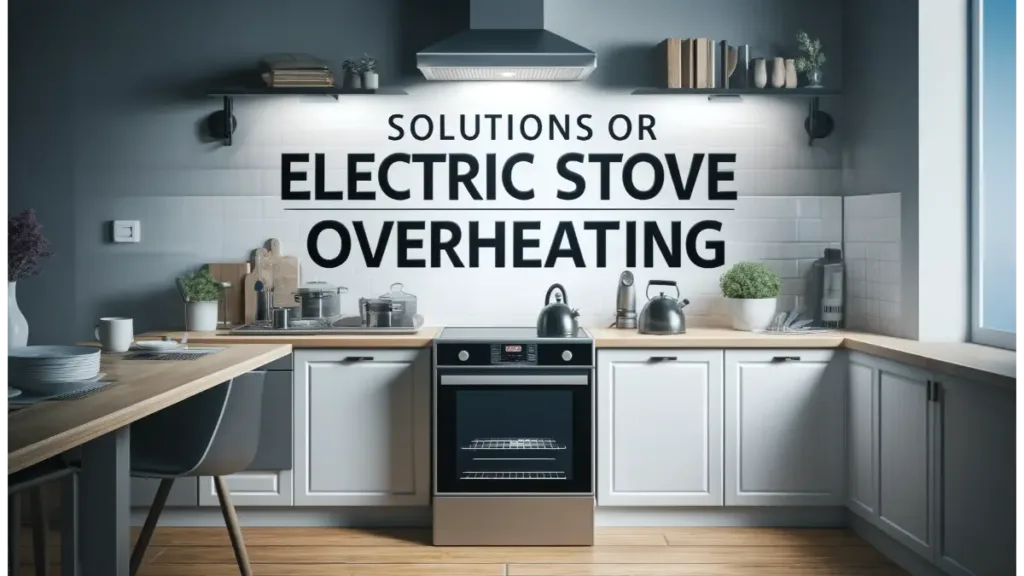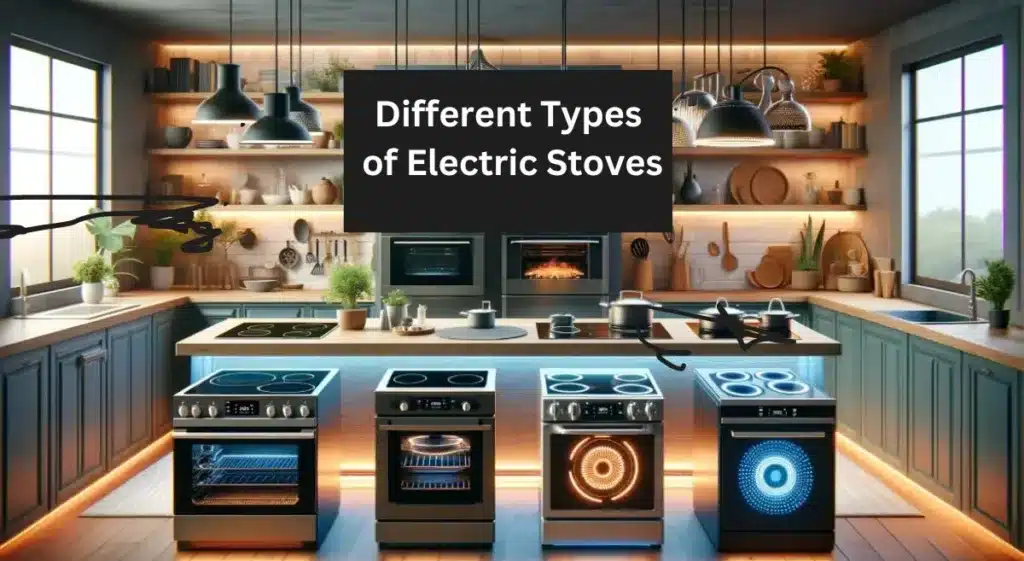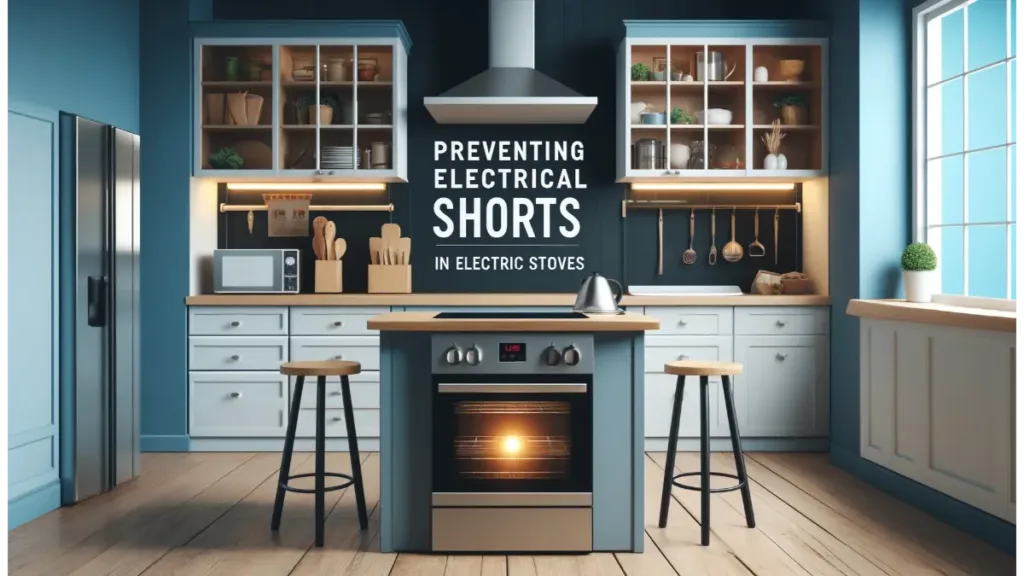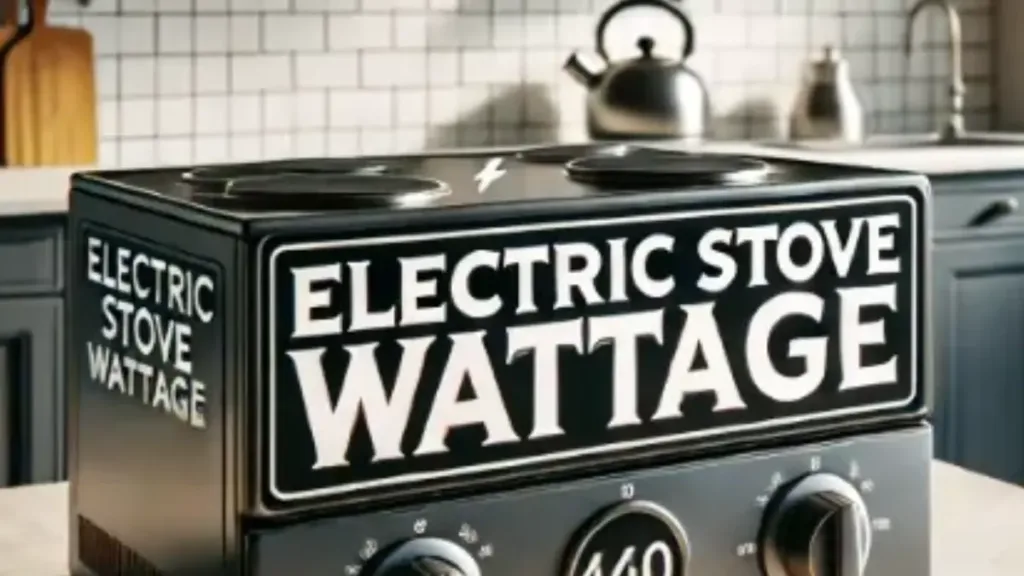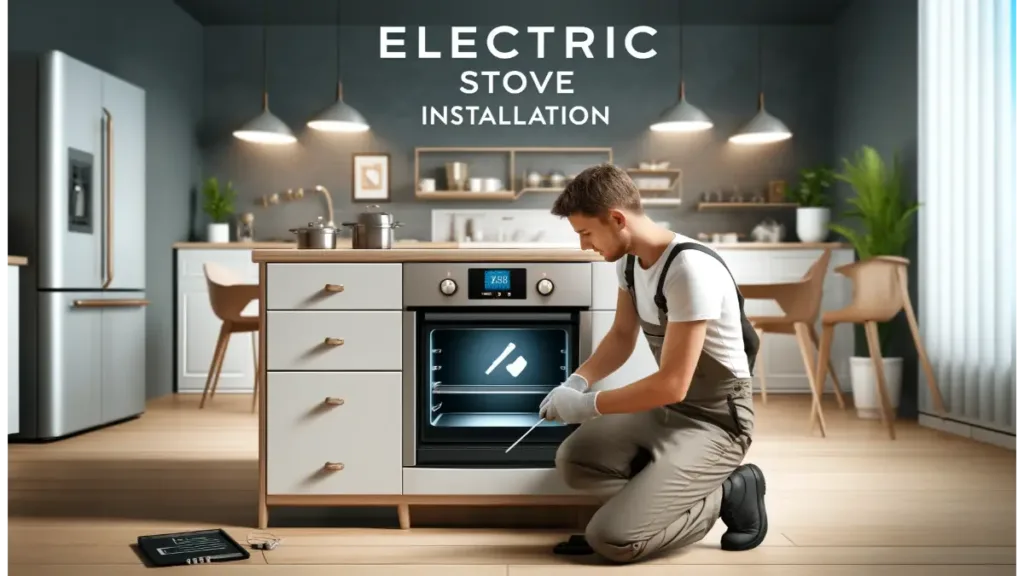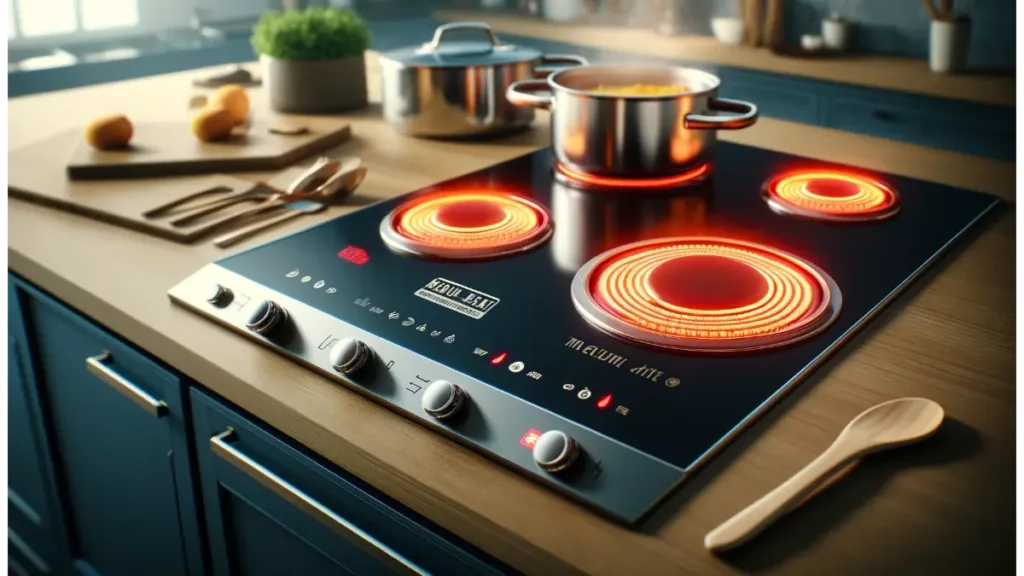Electric stoves are an integral part of many households, providing a reliable and efficient way to cook meals. However, like any frequently used appliance, they are prone to their own set of issues.
One of the most common problems encountered by users is the electric stove buzzing or humming noises. These sounds can emerge from the stove during regular operation and, while sometimes harmless, they can also indicate more significant issues.
Addressing these noises is crucial not only for the optimal functioning of your stove but also for the safety and longevity of the appliance. Unusual sounds can be symptoms of electrical problems, loose components, or malfunctioning elements, which could lead to safety hazards if left unchecked.
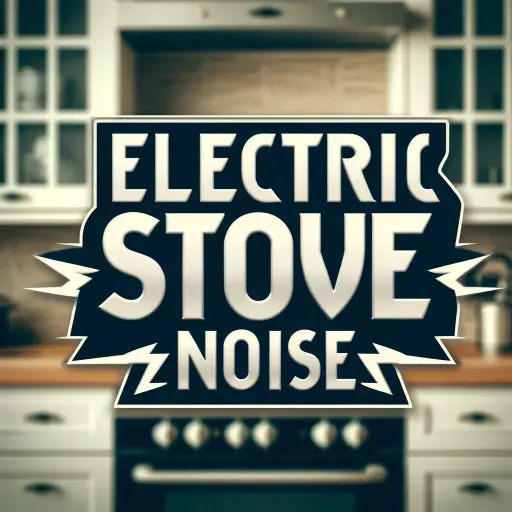
In this comprehensive blog post, we’ll delve into the causes of electric stove noise, provide practical troubleshooting tips, and offer expert advice to help you enjoy a quieter cooking experience.
Understanding Electric Stove Noise
Electric stoves, like many other electrical appliances, can sometimes make buzzing or humming noises during operation. Buzzing and humming noises are common, but they stem from different causes. Here’s a detailed look at these sounds:
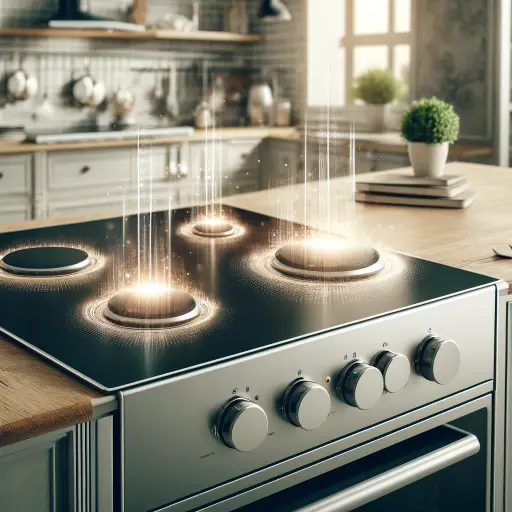
Electric Stove Humming
A humming noise from an electric stove is usually caused by the flow of electricity itself. It’s similar to the hum you might hear from other large electrical appliances, like transformers. Typically, this humming is normal and indicates that the stove is functioning as it should.
However, if the humming sound changes pitch or becomes louder over time, it could suggest an issue with the stove’s components, such as a loose part or an electrical malfunction.
Electric Stove Buzzing
A buzzing noise often points to a more specific issue. Buzzing can occur if the electrical connections are not tight enough, causing a slight arcing of electricity which produces a buzzing sound. This could be due to a loose component within the stove, such as a screw or a panel. This is more concerning than humming because it may indicate a risk of electrical failure or fire if not addressed promptly.
Know more about the causes of electric stove explosions: https://stovemastery.com/causes-of-electric-stove-explosions/
Causes of Electric Stove Buzzing or Humming
Understanding the causes of these noises can help in diagnosing and resolving any underlying issues.
Electrical Connection Issues
Loose Wires: One of the most common causes of a buzzing noise in an electric stove is loose wiring. When wires are not securely connected, they can create a humming sound due to electrical arcing or intermittent contact.

Faulty Outlet or Plug: A faulty outlet or plug can also be a source of buzzing. If the connection between the stove’s plug and the electrical outlet is not firm, it can cause vibrations that produce a humming sound.
Induction Cooktop Noise
Electromagnetic Induction: Induction cooktops use electromagnetic fields to generate heat. The process of electromagnetic induction can create a low humming sound, especially at higher power settings. This is typically normal and not a cause for concern.
Pan Compatibility: Using incompatible cookware on an induction cooktop can result in buzzing noises. Cookware with uneven bottoms can cause vibrations, leading to a humming sound.
Transformer Noise
Internal Transformers: Electric stoves with digital controls and advanced features often have internal transformers to step down the voltage. These transformers can produce a low-level hum during normal operation, which is usually harmless.
Ventilation and Cooling Fans
Cooling Fan Operation: Many electric stoves have cooling fans to dissipate heat generated by the electronic components. Dust and debris buildup on moving parts like fans or motors can produce buzzing, hissing noise.
Ventilation System: A faulty ventilation system can also cause buzzing sounds. Ensure that the ventilation ducts are clean and free from blockages to prevent excessive noise.
Heating Element Issues
Loose or Damaged Elements: Loose or damaged heating elements can produce a buzzing noise when they vibrate during operation.
Element Burnout: A burning-out heating element can cause a humming sound before it fails completely. If you notice a persistent buzzing noise accompanied by uneven heating, it might be time to replace the element.
Electrical Interference
Nearby Electrical Devices: Other electrical devices near your stove can cause electromagnetic interference, resulting in a buzzing noise.
Power Surges: Power surges can also cause buzzing noises in electric stoves.
Voltage fluctuations: Variations in voltage can affect the performance of electrical components, leading to buzzing or humming noises. Voltage fluctuations can cause electrical components to operate at suboptimal levels, resulting in increased friction and noise production.
Installation Issues
Improper installation: An improperly installed stove can cause vibrations and buzzing noises. Ensure that your stove is installed correctly according to the manufacturer’s guidelines.
7 Solutions for Electric Stove Buzzing or Humming Noise
Here are some authentic solutions to help you eliminate these noises and ensure your stove operates quietly and efficiently.
Inspect and Tighten Electrical Connections
Follow these steps to inspect and tighten connections:
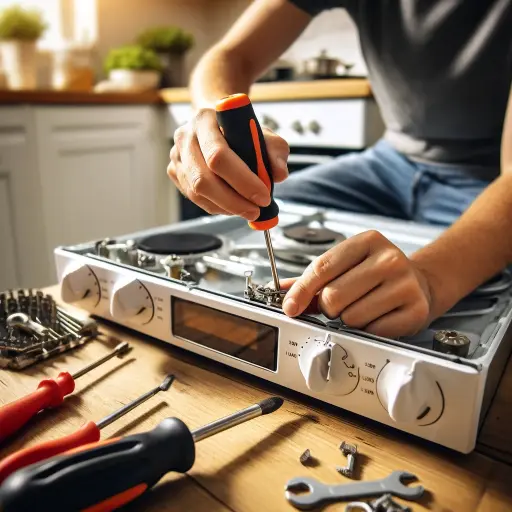
- Unplug the stove from the power source.
- Remove the back panel or access panel to expose the wiring.
- Check all wire connections for signs of looseness or corrosion.
- Tighten any loose connections using a screwdriver.
- Replace any damaged wires or connectors.
Use Induction-Compatible Cookware
If you have an induction cooktop, ensure your cookware meets the following criteria:
- Use pots and pans with flat, smooth bottoms to minimize vibrations.
- Check for an induction-compatible symbol on the cookware or use a magnet to test compatibility.
- Invest in high-quality cookware specifically designed for induction cooktops.
Clean or Replace Cooling Fans
Follow these steps to address fan-related noises:
- Unplug the stove and remove the back panel to access the fan.
- Clean the fan blades and surrounding area using a soft brush or compressed air.
- Ensure the fan blades spin freely and are not obstructed.
- Replace the fan if it is damaged or if cleaning does not reduce the noise.
Secure Heating Elements
To secure heating elements:
- Unplug the stove and remove the cooktop surface to access the elements.
- Check each heating element for signs of looseness or damage.
- Tighten any loose screws or brackets securing the elements.
- Replace any elements that show signs of wear or damage.
Clear Ventilation Ducts
Here’s how to clear dirty ventilation ducts:
- Turn off and unplug the stove.
- Locate the ventilation ducts and remove any covers or filters.
- Clean the ducts thoroughly with a vacuum or brush to remove dust and debris.
- Ensure proper airflow by keeping the ducts unobstructed.
Install a Surge Protector
Installing a surge protector can help:
- Install voltage stabilizers or surge protectors to minimize fluctuations.
- Plug the stove into the surge protector.
- Ensure proper grounding and wiring to prevent voltage drops.
Consult a Professional Technician
If the noise persists despite following these solutions, it is advisable to consult a professional technician:
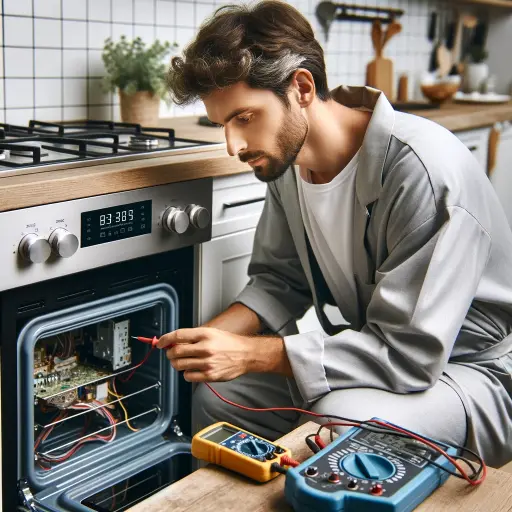
- Schedule an appointment with a certified appliance repair technician.
- Describe the noise and any steps you have already taken to address it.
- Allow the technician to inspect and diagnose the issue.
- Follow the technician’s recommendations for repairs or replacements.
Troubleshooting Electric Stove Noise
The step-by-step troubleshooting guide is here:
- Check Power Supply: Ensure the stove is properly plugged into a stable power source and that the outlet is functioning correctly.
- Inspect Electrical Connections: Examine wiring and connections for any signs of damage or looseness. Tighten or replace as needed.
- Clean Components: Dust and debris accumulation can cause noise issues. Regularly clean stove components, to minimize noise.
- Stabilize Voltage: Use a voltage stabilizer or surge protector to regulate the electrical supply and prevent fluctuations.
- Professional Inspection: If troubleshooting steps don’t resolve the issue, consult a qualified technician for a thorough inspection and repair.
- Brand-Specific Issues: Sometimes, specific models from certain brands may be more prone to making noises due to manufacturing variations. These issues are often well-documented by consumer feedback. This can provide insights into whether the noise is a known issue with a standard fix or if it’s unique to your appliance.
Preventing Electric Stove Noise
Here are some tips to keep your stove in top condition.
- Implement a regular maintenance schedule to keep electrical and mechanical components in optimal condition.
- Don’t overload electrical circuits by plugging multiple appliances into the same outlet, as this can lead to voltage drops and increased noise.
- Be mindful of environmental factors such as temperature and humidity, which can affect stove performance and noise levels.
- Choose reputable brands known for their reliability and durability to minimize the likelihood of noise-related issues.
- Periodically check for loose connections or components. If you spot anything unusual, consider calling a professional to ensure it’s handled correctly. Click here for electric stove care and maintenance tips.
Future Innovations in Stove Noise Reduction
As technology continues to advance, we can expect to see exciting innovations in electric stove design aimed at reducing operating noise. Here are some potential advancements we may see in the near future:
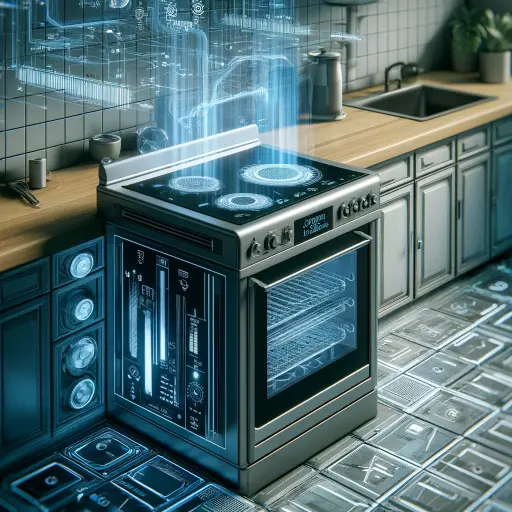
Silent Heating Technology: Researchers are developing advanced heating elements that operate silently, minimizing the buzzing or humming noises traditionally associated with electric stoves. These innovative heating elements utilize cutting-edge materials and design principles to achieve optimal heat distribution without generating unwanted noise.
Noise-Canceling Mechanisms: Inspired by noise-canceling headphones, future electric stoves may use noise-canceling mechanisms to actively reduce operational noise.
Smart Appliances: Smart appliances can optimize performance based on real-time data, adjusting settings to minimize noise while maintaining cooking efficiency. Additionally, advanced features can identify potential noise issues before they escalate.
FAQs
1. Is Stove Noise Normal?
It’s important to note that not all noise coming from an electric stove is cause for concern. It’s essential to differentiate between normal operational sounds and abnormal noise levels. Normal sounds may include a gentle hum or a soft clicking noise as the stove heats up or adjusts its temperature. While, abnormal noises may be louder humming or buzzing, or accompanied by other symptoms such as sparks or smoke.
2. Should I be concerned about my electric stove making noises when off?
Yes, if your stove makes noises when off, it could indicate a residual electrical issue or a faulty switch. Unplug the stove and consult a professional immediately.
3. Is it safe to continue using my stove if it’s making a humming noise?
It’s best to avoid using the stove until the source of the noise has been identified and fixed to prevent potential safety hazards.
4. Can I use a noise-reducing mat under my stove?
While noise-reducing mats are typically used for appliances like washers and dryers, they are not generally recommended for stoves. Instead, focus on addressing the underlying cause of the noise.
5. Can high temperatures cause my electric stove to buzz?
High temperatures can cause components to expand and create noise. Ensure that your stove is not overheating and the cooling system is functioning properly to prevent this issue.
Conclusion
Addressing electric stove buzzing or humming noise is crucial not just for your convenience but also for safety. Whether it’s through DIY fixes, routine maintenance, or professional repairs, taking action can help ensure your stove operates efficiently and safely.
Don’t ignore the small signs; they could be early warnings for more serious problems. Remember, taking care of your stove not only improves its performance but also extends its life. When it comes to appliance repair, it’s better to be safe and sure by consulting with professionals when needed.
References
https://diy.stackexchange.com/questions/282968/electric-range-clicking-noise






